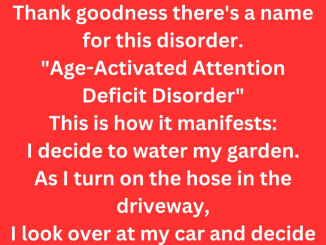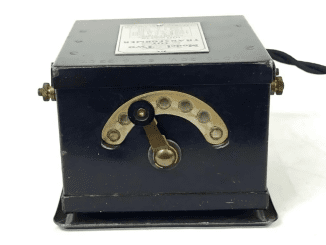Cancer is a devastating disease that affects millions of people worldwide, and it remains one of the leading causes of death globally. Unfortunately, many individuals fail to recognize the early warning signs of cancer, often dismissing them until the disease has progressed to a critical stage. Early detection, however, is absolutely vital in the fight against cancer, as it significantly improves the chances of successful treatment and recovery.
In this comprehensive article, we will explore 20 cancer signs that people often ignore until it’s too late. By being aware of these potential indicators, you can take proactive steps to safeguard your health and seek medical attention promptly if any of these symptoms arise.
1. Unexplained weight loss

Losing weight without actively trying could be a concerning sign of cancer. This unexpected weight loss can be caused by a variety of factors, such as a loss of appetite due to nausea or pain, or even certain chemicals that cancer may release into the bloodstream. This is particularly true for cancers that affect the blood system, like leukemia and lymphoma.
2. Fatigue

Feeling perpetually tired, even after getting enough rest, could be a potential red flag for cancer. Fatigue is one of the most common symptoms of this disease and can affect individuals of any age. While fatigue can have various underlying causes, such as anemia or depression, it’s essential to pay attention to any unexplained and persistent feelings of exhaustion.
3. Persistent cough

A cough that lasts for more than two weeks could be a sign of lung cancer. However, it’s important to note that a persistent cough can also indicate other lung-related conditions, such as pneumonia or bronchitis. If you start coughing up blood, it’s crucial to seek medical attention immediately.
4. Shortness of breath

Difficulty breathing, known as dyspnea, could be a sign of lung cancer or other types of cancer. If you notice that you’re taking deep breaths but still feeling short of breath, or if your breathing seems labored, it’s essential to consult with your healthcare provider.
5. Chest pain

Pain in the chest could be a symptom of lung cancer or other forms of cancer. It’s important to seek medical attention if you experience chest pain, as it could also be a sign of a heart attack, which requires immediate medical intervention.
6. Abdominal pain

Persistent abdominal pain could be a sign of various types of cancer, including ovarian, pancreatic, or liver cancer. If you’re experiencing ongoing abdominal discomfort, it’s crucial to consult with your healthcare provider to determine the underlying cause.
7. Changes in bowel habits

Alterations in bowel habits, such as diarrhea or constipation, could be a potential indicator of colon cancer. If you notice any changes in your bowel movements, it’s essential to schedule an appointment with your healthcare provider.
8. Blood in urine or stool

The presence of blood in your urine or stool could be a sign of bladder, kidney, or colon cancer. If you notice any blood in your bodily fluids, it’s crucial to seek medical attention immediately.
9. Difficulty swallowing

Difficulty swallowing, known as dysphagia, could be a symptom of throat cancer or esophageal cancer. If you’re experiencing any issues with swallowing, it’s essential to consult with your healthcare provider.
10. Hoarsenes

Persistent hoarseness could be a potential indicator of throat cancer or laryngeal cancer. While hoarseness can also be a symptom of less serious conditions, such as sinusitis or bronchitis, it’s important to have it evaluated by a healthcare professional.
11. Skin changes

Changes in the appearance of your skin, such as the development of new moles, changes in the size or color of existing moles, or the presence of sores that don’t heal, could be indicators of skin cancer. It’s crucial to perform regular self-examinations and consult with a dermatologist if you notice any concerning skin changes.
12. Sores that don’t heal

Sores that don’t heal could be a sign of skin cancer or other types of cancer. See your healthcare provider if you have sores that don’t heal or that bleeds. Sores also could be a symptom of a less serious condition, such as shingles (herpes zoster) or chickenpox.
13. Swollen lymph nodes

Swollen lymph nodes could be a sign of lymphoma or other types of cancer. See your healthcare provider if you have swollen lymph nodes. Swollen lymph nodes also could be a symptom of an infection or other less serious condition, such as mononucleosis.
14. Headaches

Chronic or worsening headaches, particularly if accompanied by other neurological symptoms, could be a sign of brain cancer. If you’re experiencing persistent or unusual headaches, it’s essential to seek medical attention.
15. Vision changes

Vision changes could be a sign of eye cancer. See your healthcare provider if you have vision changes that don’t go away or get worse. Vision changes also could be a symptom of another less serious condition, such as a detached retina or cataracts.
16. Bone pain

Bone pain could be a sign of bone cancer or other types of cancer that have spread to the bones. See your healthcare provider if you have bone pain that doesn’t go away or get worse. Bone pain also could be a symptom of another less serious condition, such as arthritis or osteoporosis.
17. Joint pain

Joint pain could be a sign of bone cancer or other types of cancer that have spread to the bones. See your healthcare provider if you have joint pain that doesn’t go away or get worse. Joint pain also could be a symptom of another less serious condition, such as arthritis or osteoporosis.
18. Nausea and vomiting

Nausea and vomiting could be a sign of cancer, especially if it is accompanied by other symptoms. Call your healthcare provider if you have nausea or vomiting that lasts for more than one day. If you have these symptoms with other signs and symptoms of bone cancer, such as weight loss, back or chest pain, and bowel movement changes, see your healthcare provider immediately.
19. Fever

A fever that lasts for more than a few days could be a sign of cancer. If you have a fever that lasts for more than a few days, call your healthcare provider. If you have other signs and symptoms of cancer, such as weight loss, back or chest pain, and bowel movement changes, see your healthcare provider immediately.
20. Night sweats

Night sweats could be a sign of lymphoma or other types of cancer. If you have night sweats that last for more than a few days, call your healthcare provider.
The key to successfully treating and overcoming cancer is early detection. When sores that don’t heal are caught and addressed promptly, the chances of successful treatment and recovery are significantly higher. It’s critical to pay attention to any persistent, non-healing sores and to seek medical attention as soon as possible.


